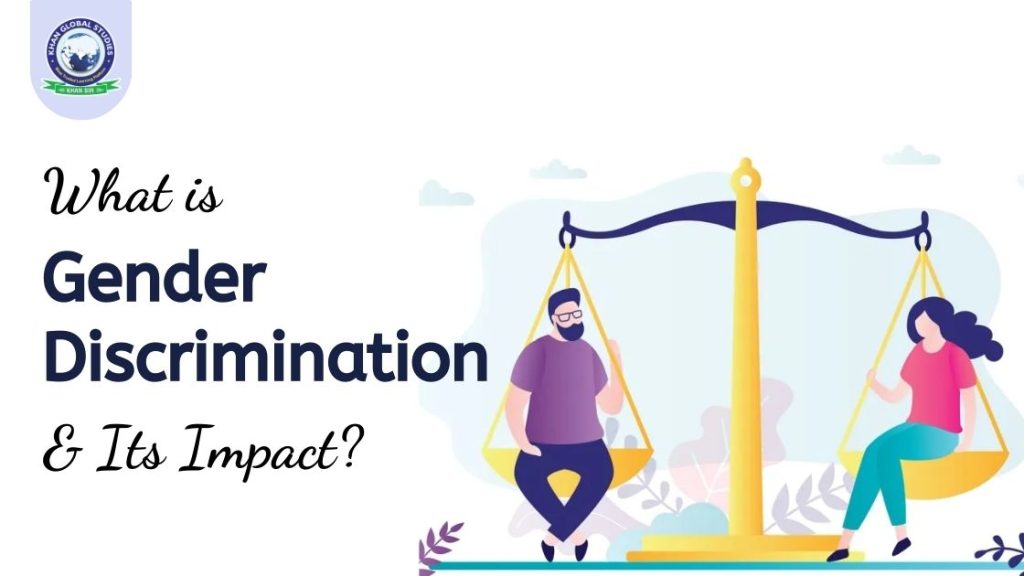Various types of social upheavals exist in society and gender discrimination is the most common element among them. It is a feeling of unfairness or prejudice, experienced by a particular gender as opposed to the other gender in any context. Gender discrimination can deprive a person of equal opportunities to advance in his or her chosen life path. The Millennium Development Goals presented by the United Nations include gender equality as one of the most relevant topics for discussion and improvement at the global level. The elimination of gender inequality will undoubtedly remove barriers to reaching the desired Millennium and Sustainable Development Goals in a variety of environmental settings.
Gender Discrimination, the unfair treatment of individuals based on their gender, remains a pervasive problem throughout the world, including India. This article explores the concept, its roots, widespread instances, and potential solutions, highlighting its impact on achieving sustainable development goals.
The Impact of Gender Inequality
The Millennium Development Goals, now superseded by the Sustainable Development Goals (SDGs), recognized gender equality as crucial for global progress. Gender discrimination not only harms individuals but also impedes societal development across various aspects:
- Economic: When women lack equal opportunities in education, employment, and leadership, it hinders economic growth and national prosperity.
- Social: Gender norms that limit women’s agency and mobility contribute to social inequalities, impacting health, education, and overall well-being.
- Political: Underrepresentation of women in decision-making spaces weakens participation and perpetuates discriminatory policies.
Roots of Gender Discrimination in India
The seeds of discrimination are often sown early, with deeply ingrained social norms favouring boys over girls in terms of opportunities, education, and mobility. This is fueled by several factors:
- Patriarchal Traditions: Historical power structures prioritize men and limit women’s roles.
- Lack of Education: Limited access to education perpetuates harmful stereotypes and hinders development.
- Limited Economic Opportunities: Lack of jobs and financial independence restricts women’s choices and autonomy.
- Discriminatory Legal Structures: Unjust laws can perpetuate societal biases and restrict women’s rights.
- Inadequate Healthcare Access: Unequal access to healthcare creates vulnerabilities and challenges.
- Cultural Norms: Rigid cultural practices can exclude women from religious participation and decision-making.
- Underrepresentation in Leadership: Lack of female role models hinders inspiration and progress.
Examples of Gender Discrimination
Gender discrimination manifests in various forms:
- Education: Fewer girls attend school, particularly in rural areas.
- Child Marriage: Early marriage forces girls out of education and limits their life chances.
- Workplace Discrimination: Women face unequal pay, limited opportunities, and harassment.
- Violence Against Women: Sexual assault, domestic violence, and honour killings are sadly prevalent.
Moving Towards Equality
Achieving gender equality requires a multi-pronged approach:
- Educating Girls and Boys: Promoting awareness and challenging discriminatory beliefs from a young age.
- Empowering Women Economically: Ensuring equal access to education, jobs, and leadership roles.
- Strengthening Legal Frameworks: Enacting and enforcing laws that protect women’s rights.
- Improving Healthcare Access: Providing equitable access to quality healthcare for women.
- Promoting Cultural Transformation: Challenging discriminatory cultural norms and practices.
- Increasing Women’s Political Participation: Ensuring women’s voices are heard at all levels of decision-making.
Conclusion
Gender discrimination is a complex issue with deep roots, but it is not insurmountable. By working together, addressing its causes, and implementing effective solutions, we can create a world where all individuals, regardless of gender, have equal opportunities to thrive and contribute to a more just and sustainable future.



